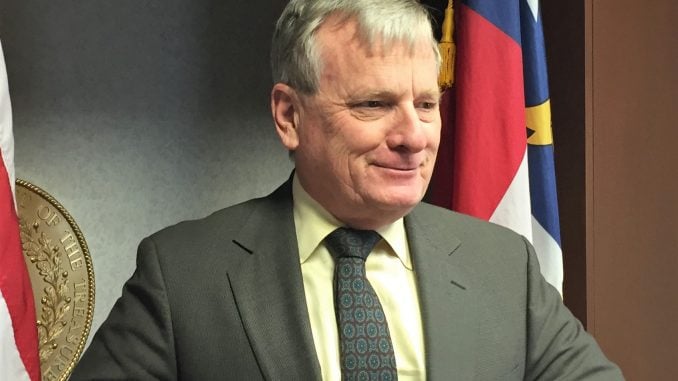
RALEIGH Although few votes were held while lawmakers were in Raleigh this week, bills were filed or referred to committee that could attend to lingering disaster relief and gauging fiscal storm clouds populating the horizon related to pension liabilities.House Bill 34 appropriates funds to the State Highway Patrol for the purchase of two rescue helicopters. After the the devastating floods associated with Hurricane Matthew and the damaging wild fires in Western North Carolina ravaged the Old North State in late 2016, the need for additional rescue assets became apparent.The bill would allocate $18.2 million for two rescue helicopters. One stationed in the west and the other stationed in the east.Gov. Roy Cooper also met with Cumberland County leaders Monday to continue assessing the impact and needs of the Eastern North Carolina communities affected by the storm.$200 million of federal funds were made available to help in recovery efforts and a state appropriations were cleared through the legislature during special session in December. Despite the efforts, sources at the North Carolina General Assembly indicate that they are not finished with disaster relief due to the still ailing condition of many families and communities affected.Another bill, H.B. 24, that aims to establish a joint committee to study the unfunded liabilities of the retiree health benefit fund was referred to the House Pensions and Retirement Committee for consideration after passing its first reading on the House floor. The bill saw action during as the N.C. Treasurer Dale Folwell (R) released the 2017 Debt Affordability Study.”As Treasurer, I have pledged to preserve and protect the state’s AAA bond rating,” said Folwell. “The recommendations in this study are a necessary recognition of a changing fiscal landscape. Even as the General Assembly has fully funded the pension, we have witnessed the unfunded health care and pension liabilities of our state continue to grow. Deliberate, gradual action is required to address this issue and cannot wait another year.”The study found the the state has unfunded pension and other post employment benefit liabilities in the neighborhood of $38 billion.The study was prepared by the staff of the State and Local Government Finance Division of the Department of State Treasurer and approved by the Debt Affordability Advisory Committee, which was created by the General Assembly in 2004 and is chaired by the Treasurer.Next week’s legislative committee schedule is ramps up as members begin budget considerations.




